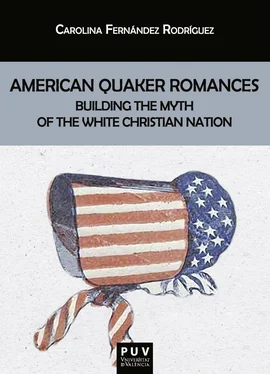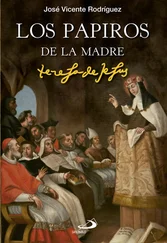Quaker Romances: The Corpus
In order to select my primary sources, I have followed three criteria. First, as already stated, I have selected romances whose main characters (both the hero and the heroine, or at least one of them) are Quakers and in which Quakerism plays an important role. As will be seen, many of the Quaker romances I have selected are Christian (also referred to as inspirational) and mostly adhere to the features of this subgenre. Others, however, are secular and may be more liberal in their treatment of sexual issues. I have nonetheless decided to include the latter in my corpus as well, even if this comprehensive approach may complicate my analysis of Quaker romances to some extent. My decision is based on the fact that it is often difficult to draw the line between Christian and secular romances when both have Quakerism featuring prominently in their plots. The publishing house responsible for the novels’ publication—whether Evangelical, Quaker or secular—and the authors’ religious backgrounds will determine which point the novels occupy in the continuum; still, there is a fluidity that is difficult to contain, and, for that reason, my analysis will incorporate romances with Quaker protagonists regardless of whether their portrayal of a Christian sect is drawn with a religious goal in mind or a secular one.
Second, I have limited my analysis to historical romances, i.e., romances that take place at some point in the period that goes from the seventeenth century to the Second World War. Besides being historicals, the romances selected for this book have been written in the last years of the twentieth century or in the first decades of the twenty-first century, with the exception of Janet Whitney’s Judith , which was published in 1944, that is, the year before the end of the Second World War. This means that I have not taken into consideration romances written in the nineteenth century despite their immense interest nor in the first decades of the twentieth century. For once, at the time when they were written—especially those published in the nineteenth-century—they were not historical, but contemporary. What is more, many of them have already been analyzed by James Emmett Ryan in his article “Imaginary Friends: Representing Quakers in Early American Fiction” (2003). In this article, Ryan demonstrates that Quakers were often used as moral exemplars in the American fiction of the nineteenth and early twentieth centuries. Ryan also argues that by World War I, the stereotypical Quakers used by nineteenth-century writers like Rebecca Harding Davis, Eliza Buckminster Lee, Harriet Beecher Stowe or Louisa May Alcott, among many others, came to be used much less frequently, as if Quakerism had outlived its usefulness as an exemplary model. This trend, however, is reversed at the end of the twentieth century, with the rise of Christian romances and the renewed interest in the Religious Society of Friends that this book attests to.
As an aside, I should add that I have only included historical novels which are set in one period alone or in two (as is the case of the Nantucket Legacy trilogy) but have dismissed romances which include time travelling or any other supernatural elements, as my focus is on the historical novel that tries to generate a sense of verisimilitude. This explains why a very interesting novel such as Grey Dawn. A Tale of Abolition and Union , by Nyri A. Bakkalian (2020), has been rejected. Though it features a Quaker heroine, Chloë Parker Stanton, who joins the Union army at the time of the Civil War, it is set in two periods: the nineteenth century and the year 2000, to which Chloë is magically transported. In the protagonist’s own words, since she is one of the novel’s first-person narrators: “Three days after the Battle of Gettysburg, all changed when I was flung to the far future” (2020: 1). Besides resorting to supernatural elements, the novel, as said, is partly set in the year 2000; therefore, in those sections that take place in the twenty-first century it ceases to be, strictly speaking, historical. It may nonetheless be of great interest to whoever is drawn to romances with Quaker characters, as it is the only one I have found that features a trans protagonist.
Third, I have focused on romances whose plots develop entirely or nearly so in America, or, if they do not, they are nonetheless intrinsically related to U.S. history. For these reasons, Janet Whitney’s The Quaker Bride (1953) has been rejected, as, despite its appealing title, it is more a Gothic novel of suspense set in the mid-nineteenth century than a romance, and besides most of the plot takes place in England; a well-known Quaker romance, Laura Kinsale’s 1992 Flowers from the Storm , 2 has also been left aside, given that it is set in England during the Regency period; the first two volumes of Ann Turnbull’s Quaker trilogy have likewise been discarded, as they take place in England, whereas the third volume, Seeking Eden (2012c), which carries the protagonists to the colony of Pennsylvania, has been included. 3 To give but one more example of the consequences of applying the previously given criteria, I should point out that the three volumes of Anna Schmidt’s The Peacemakers trilogy (2013-2014) have been chosen, because, although only the third one takes place in the U.S., the other two are dominated by WWII events whose importance for U.S. history is obvious.
It should be noticed that most of the romances that met the above criteria and that have been used as primary sources for this book, a total of thirty-one, 4 have been published in the twenty-first century (thirty-two romances, to be precise), with only a few exceptions (eight, in particular). This surely must say something about the preferences of a certain part of the reading public in contemporary America, as well as about the interests of the romance publishing industry that caters to said public. But for now, rather than delving into those preferences and interests, I will call attention to the dates of publication. Janet Whitney’s Judith , published in 1944, is the earliest book, after which comes The Golden Raintree (1990) by Suzanne Simmons Guntrum; in 1993 appeared Spindrift , by Miranda Jarrett (Susan Holloway Scott), and Carla Kelly’s Miss Whittier Makes a List , published in 1994, followed suit. The Randolph Legacy , by Eileen Charbonneau, came out in 1997, while Sue McCracken’s four novels in the Friends series were published between 1994 and 2001.
All the other romances chosen for this analysis have been published in the twenty-first century, a fact whose causes need to be looked into. In a review of Faith and Fiction: Christian Literature in America Today (Gandolfo 2007), Barbara B. Moran states that the popularity of faith-based fiction, which mirrors general popular fiction in terms of genre choices and therefore includes mysteries, suspense, horror, and, needless to say, romances, “has increased greatly in the last decade” (2008: 222). Moran affirms that religious fiction was once sold almost exclusively in Christian bookstores, but in the first decade of the twenty-first century, “a wide-range of such fiction is stocked by all mainstream book sellers, and it constitutes the largest type of fiction available in the book departments of discount stores such as Wal-Mart”; moreover, Moran continues, its popularity is “also evident in public libraries where inspirational fiction is now one of the most frequently checked out types of material” (2008: 222-223).
Of all the twenty-first century romances studied in this book, Catherine Archibald’s Loving Charity (2000) was the first to come out, followed by Ann Turnbull’s Seeking Eden in 2006 and by Tucker’s Claim , by Sarah McCarty, in 2009; Mary Ellis’ The Quaker and the Rebel appeared in 2014; Lyn Cote’s nine novels were published between 2008 and 2016; Joanne Sundell’s Hearts Divided and Hearts Persuaded came out in 2010; the four novellas collected in A Quaker Christmas (by Lauralee Bliss, Ramona Cecil, Rachael Phillips, and Claire Sanders) came out in 2011, while the novellas put together in The Quakers of New Garden (by Claire Sanders, Ann Schrock, Jennifer Hudson Taylor, and Susette Williams) were published in 2012; Anna Schmidt’s The Peacemakers trilogy saw the light between 2013 and 2014, and Donna Thorland’s The Turncoat in 2013 as well; Edith Maxwell’s Called to Justice was published in 2017, and Suzanne Fisher’s Nantucket Legacy trilogy appeared in 2018, the last one to be published so far.
Читать дальше












